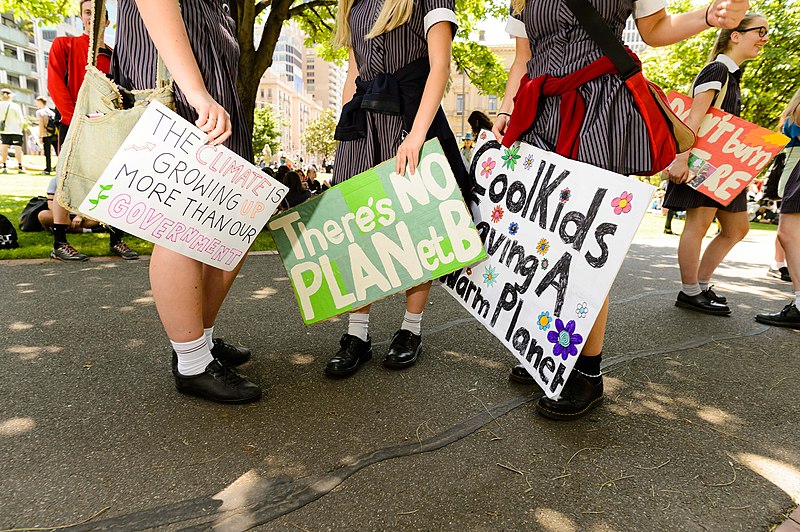- 14 3402-5578
- Rua Hygino Muzy Filho, 737, MARÍLIA - SP
- contato@latinoobservatory.org
 Wikimedia Commons
Wikimedia Commons
After disproportionately experiencing the effects of global warming, the Latino community in the United States is leading activism around climate change, often based on the traditions of their ancestral lands.
According to Juan Roberto Madrid, an environmental science and public health specialist based in Colorado for the national nonprofit GreenLatinos, “There has been a real national uprising in Latino activism in environmentalism in recent years. Climate change may be impacting everyone, but it is impacting Latinos more”.
Latinos in the US often live in neglected, low-income neighborhoods that have higher temperatures than nearby areas due to higher population density and a limited tree stock.
“Latino activists are now sounding the alarm about the risks of global warming for their neighborhoods and the world. They include a teen who protested every Friday for weeks outside U.N. headquarters in New York, a Southern California academic who wants more grassroots efforts included in global climate organizing and a Mexico-born advocate in Phoenix who teaches young Hispanics the importance of protecting Earth for future generations, according to Associated Press publication.
Recent research shows most Latinos in the U.S. consider climate change an important concern. A Pew Research Center study showed “About eight-in-ten U.S. Hispanics (81%) say addressing global climate change is either a top concern or one of several important concerns to them personally, with 39% saying it is a top personal concern. By comparison, a lower share of non-Hispanics (67%) says addressing global climate change is at least one of several important concerns, due in large part to a lower share who says it is a top concern (29%). In addition, a greater share of non-Hispanics than Hispanics says addressing global climate change is not an importantconcern to them (32% vs. 18%)”.
Colorado College’s Conservation in the West Poll published this year showed notably higher percentages of Latino, Black and Indigenous voters in eight western states concerned about climate change, pollution and the impact of fossil fuels.
“Latino and other communities of color are disproportionately affected by climate change, such as more frequent, intense and longer heat waves in Phoenix, Las Vegas, Palm Springs and other arid western communities. A study by researchers from the University of California, Davis and the American University of Beirut concluded last year that poor and Latino neighborhoods in 20 metro regions around the Southwest endure temperatures several degrees higher on the hottest days, creating greater risks for heat-related illnesses”, according to AP News.
“It’s much hotter here now than when I first moved here”, Democratic U.S. Rep. Ruben Gallego, who lives nearby, said as he toured the 259 newly planted drought resistant elm, ash, sissoo and Chinese pistache trees.
Gallego, who was born in Chicago and raised there by his Colombian mother, said segregation in Phoenix once forced Black and Latino residents to live in the city’s South, which meant fewer trees and other investments there. According to AP News, “He has teamed up with fellow Democrat U.S. Rep. Bonnie Watson Coleman, of New Jersey, on a bill to create $30 million in federal grants annually for several years to ease the effects of urban heat, especially in low-income communities of color”.
The city earlier this year worked with the
conservation nonprofit American Forests to create the first of 100 “cool corridors” by
planting shade trees for pedestrians and cyclists alongside a South Phoenix
park named for the late Latino activist Cesar Chavez.











